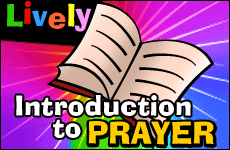 Identifying as a Jew
Identifying as a Jew


4 min read
4 min read
11 min read
5 min read
Tapping into one of the most potent forces in the universe.
Dateline: 1997. Psalms were being recited in synagogues around the world. Women had accepted the call to light Shabbat candles for the first time. Just before Shabbat, the hostage's mother, Esther Wachsman, made a dramatic and emotional appearance on Israeli television, pleading with the public to pray for her son Nachshon who had been kidnapped by Hamas. Earlier that day, the terrorists had released a video of Nachshon begging the government to relent to their demands.
The entire country spent Shabbat in tense apprehension, not knowing the fate of the hostage. When Shabbat was over we received the horrible news that Nachshon had been murdered during a rescue attempt by the IDF. The Wachsman family sat shiva, and thousands of Jews from all backgrounds flocked to their home in the Ramot section of Jerusalem.
The broken father barely answered the reporter's questions, until one correspondent had the audacity to ask, "Well, what happened to all our prayers?"
The room fell silent as all eyes fell on Yehudah Wachsman, who quietly replied: "All of my life I have been asking God for things, from health to spouse to job, and He always answered me positively. But it is a father's prerogative to say 'no' every so often. This time He said 'no' to our prayers."
The main point of prayer is to build a relationship with the Almighty. The ability to "talk things over" with our Creator and to feel that He hears and reacts to our input is the true power of prayer.
Why Pray?
"Would it spoil some vast eternal plan, if I was a wealthy man?" demanded Tevya in Fiddler on the Roof. This attitude places our entire concept of prayer into question. Is it not chutzpa to tell the Almighty how to run His world? "You made this guy ill, I think You should make him well! You made that guy poor; I think You should make him rich! You sent the Jews into exile, how about redeeming us already?!"
Is it not chutzpa to tell the Almighty how to run His world?
Some questions: 1) A Jew stands before his Creator three times a day, 365 days a year, proclaiming that God is "great, mighty, awesome, etc." We then proceed to request all of our needs ("Give me this and give me that"), and end with our tremendous thanks. But is it really possible to "butter up" God with our praise and then try to get everything out of Him? Is this what prayer is really about?!
2) It's unlikely that this method would work for even a mortal king. Imagine going to the palace every day, praising the king's benevolence and greatness -- and then requesting favors and cash!
3) Furthermore, very often a person is not even aware what is to his benefit and what is not. The concept of a "blessing in disguise" is when something occurs that seems to be negative, but in the end it turns out to be very beneficial. So why bother articulating our needs and desires when one cannot flatter the Creator nor tell Him how to run His world -- especially when we don't even know for sure what is to our own benefit?!
The Concept of Prayer
We live in a world of action. "Six days shall you do all your activities, and rest on Shabbat." This teaches that it is a very important mitzvah to support one's family, and one must try every means to do so. It's not enough to "just have faith" and to pray. We must make the effort to cure our illnesses, find jobs, and protect our security.
On the other hand, anyone accepting the Torah's concept of the Almighty must believe that ultimately, God cures us, not the antibiotic. God finds us the job, not the headhunter. God protects the country, not the Air Force. Without the will of God, all human efforts are meaningless!
How do we bridge this apparent contradiction? On one hand, we sweat to earn a living, and then believe that it all came from above and was decreed on Rosh Hashana!
Prayer is the bridge between our necessary efforts and our faith in the Almighty.
The answer is prayer. To connect with God and realize that we have a "long lost Father" in Heaven who wants only our benefit. If you suddenly discover your long-lost father who happens to be a billionaire and wants to help you out, you would not demand, "prove it!" but rather ask "what's your phone number!" (heard from Rabbi Noah Weinberg)
A Jew, three times every day, must remind himself that he constantly stands in front of a "great and awesome" God, and must exhibit humility. He must remind himself that in spite of the fact that his business (which he sweated to establish) is prospering, he must still request all of his needs from the Boss, and not to forget gratitude.
We live on a dual plane. We take the antibiotic, and pray. We maintain armed forces, and pray for their success. Prayer is the bridge between our necessary efforts and our faith in the Almighty. Learn about it, become proficient, enjoy it -- and reap the eternal benefits!
